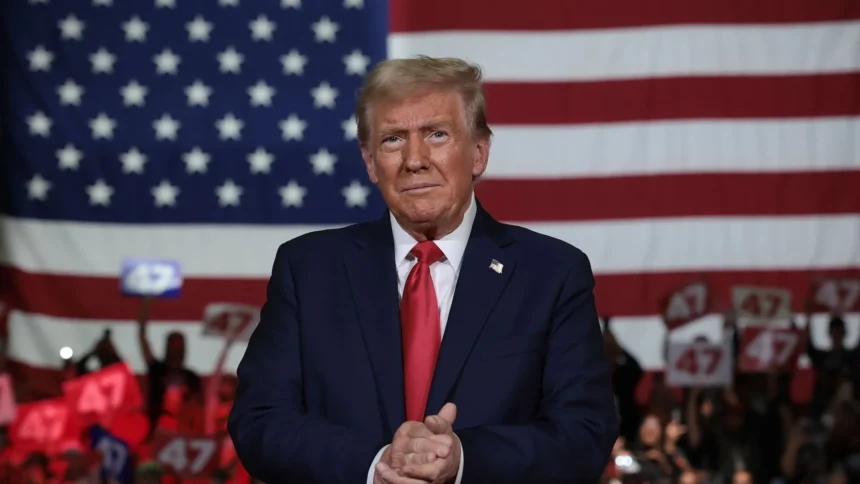In recent headlines, MSNBC sparked controversy by comparing a rally for former President Donald Trump to a Nazi event, igniting outrage among Trump’s supporters and leading to conversations about whether MSNBC could face a defamation lawsuit. While the idea of suing a major news outlet may seem straightforward, defamation laws in the United States set a high bar for claims, particularly when public figures are involved.
This article dives into the challenges Trump or his supporters would face in suing MSNBC, exploring U.S. defamation law, the legal hurdles of proving “actual malice,” and examples of past cases where public figures attempted similar lawsuits. We’ll look at how defamation laws protect free speech and media accountability, shedding light on why a lawsuit against MSNBC might be difficult to win.
Understanding Defamation: Could MSNBC Be Sued for Defamation?
Defamation law protects individuals from damaging, false statements. For a defamation lawsuit to succeed, the plaintiff needs to demonstrate four key elements:
- False Statement: The statement must be untrue.
- Publication: The statement must be publicly shared.
- Harm: The statement must cause reputational or financial damage.
- Negligence or Malice: Public figures, like Trump, must also prove “actual malice” — that the network knowingly presented false information or recklessly ignored the truth.
The U.S. Supreme Court established the “actual malice” standard in the landmark New York Times Co. v. Sullivan case (1964), protecting the media’s right to report freely on public figures. This standard makes it difficult for public figures to win defamation cases, safeguarding free speech under the First Amendment.
Why a Lawsuit Against MSNBC Faces Challenges
While the recent MSNBC remarks on Trump’s rally are inflammatory, the legal hurdles for a defamation suit are substantial:
- False Statement: Comparing Trump’s rally to a Nazi event is likely seen as an opinion rather than a factual assertion. Defamation laws generally protect opinions, especially in editorial or political commentary.
- Publication: MSNBC’s comments were widely broadcast, fulfilling the publication requirement.
- Harm: Proving harm is complicated; Trump, as a public figure, is already subject to extensive public scrutiny. Courts often expect public figures to be resilient to criticism.
- Actual Malice: Proving that MSNBC acted with actual malice — knowingly broadcasting a falsehood or showing reckless disregard for truth — is extremely challenging. The comments are more likely to be viewed as protected opinion, not as a deliberate falsehood.
Case Examples: Public Figures and Defamation Lawsuits
Public figures who have attempted to sue news outlets for defamation have faced significant legal challenges, illustrating the high bar set by the “actual malice” standard:
- Sarah Palin v. The New York Times: Palin sued over an editorial linking her to a shooting, but the court ruled she failed to prove actual malice, illustrating how difficult it is to win defamation cases against news outlets.
- Hulk Hogan v. Gawker: Although this wasn’t a defamation case, Hogan won a privacy lawsuit, showing that claims outside defamation, like privacy, can sometimes succeed. However, such cases are rare against media companies.
- Johnny Depp v. The Sun: Depp won a libel suit in the UK, where defamation laws are stricter than in the U.S., showing that U.S. laws heavily favor free speech protections.
Alternatives to Defamation Lawsuits
If a defamation suit isn’t viable, public figures have other ways to counter controversial media portrayals:
- Public Statements: Issuing a direct rebuttal can help clarify or counter false narratives.
- Media Standards Bodies: Complaints to media regulation bodies can also hold outlets accountable.
- Social Media Response: Using social media campaigns can sway public opinion without entering a legal battle.
These options allow public figures to challenge media narratives effectively, even when defamation lawsuits are impractical.
Conclusion: Why MSNBC Is Likely Protected from Defamation Claims
While MSNBC’s recent comparison has generated backlash, suing the network for defamation faces serious legal obstacles. Defamation laws in the U.S. strongly protect the press, especially when reporting on public figures, making it difficult to prove that MSNBC acted with actual malice.
This legal framework is designed to protect free speech, allowing the media to comment and critique public figures without constant fear of lawsuits. While the comments may be controversial, they are likely protected under the First Amendment, balancing free press rights and media accountability.
Yes, you can sue MSNBC or any other news outlet for defamation in the U.S., but it requires proving false statements were made with “actual malice,” especially if the plaintiff is a public figure like a politician.
“Actual malice” in defamation cases means the news outlet knowingly made false statements or showed reckless disregard for the truth. Public figures must prove this to win defamation lawsuits against media organizations in the U.S.
Yes, there have been cases where individuals won defamation lawsuits against news channels. However, such cases are challenging and require strong evidence, especially when the plaintiff is a public figure.







